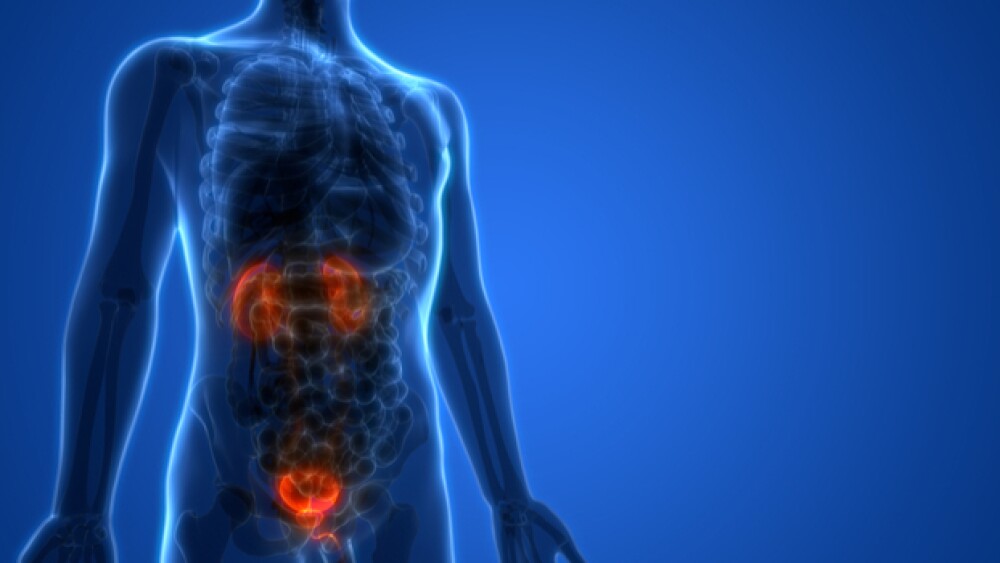UroGen Pharma, based in New York, announced positive topline results from its Phase III OLYMPUS clinical trial. The trial evaluated UGN-101 (mitomycin gel) for instillation for the non-surgical treatment of low-grade upper tract urothelial cancer (UTUC).
UroGen Pharma, based in New York, announced positive topline results from its Phase III OLYMPUS clinical trial. The trial evaluated UGN-101 (mitomycin gel) for instillation for the non-surgical treatment of low-grade upper tract urothelial cancer (UTUC).
Of the 71 patients in the trial, 61 have been evaluated for the primary endpoint, which was complete response. The remaining 10 patients are awaiting primary disease evaluation (PDE). On an intent-to-treat basis, 57 percent of patients showed a CR at their PDE. The PDE was conducted four to six weeks after completing treatment with UGN-101.
About 45 percent of the cancers were categorized as unresectable by surgery at baseline. Of the patients who hit CR, six-month durability has been determined on about half. Durability is a key secondary endpoint.
“We are pleased to report that the CR and durability data remain consistent with the Interim Analysis presented in May 2018,” stated Mark P. Schoenberg, UroGen’s chief medical officer. “These results continue to validate the potential of UGN-101 to shift the surgical treatment paradigm and benefit patients whose only alternative would be repetitive endoscopic surgical intervention or complete loss of a kidney.”
Schoenberg added, “The durability observed in the OLYMPUS study provides further evidence that the non-surgical treatment of LG UTUC with UGN-101 may result in clinically-meaningful, recurrence-free survival. We are grateful to the patients, their families, and clinical investigators who have made this important study possible.”
In December 2018, UroGen initiated a rolling submission of the New Drug Application (NDA) to the U.S. Food and Drug Administration (FDA). Previously, the FDA granted the drug Orphan Drug, Fast Track, and Breakthrough Therapy Designations. UroGen indicates it plans to seek regulatory approval based on the data. How the current government shutdown will affect the timeline is unknown. Currently, about 60 percent of the FDA is furloughed, and NDAs are not being considered.
UGN-101 is a formulation of mitomycin. The company used its RTGel tech platform to develop a sustained release, hydrogel-based formulation, which enables longer exposure of the drug to urinary tract tissue.
UTUC has common risk factors to urothelial bladder carcinoma (UBC), such as smoking and aromatic amines, but UTUC has very specific differences, although the grading of the two cancers is identical. The primary treatment for both is surgery.
A 2016 article in Translational Andrology and Urology noted, “Similarly to UBC, UTUC patients at high risk of disease progression are treated by radical surgery. However, because of the inaccurate preoperative or transurethral staging of UTUC, many radical nephroureterectomies are performed unnecessarily.”
Urothelial carcinomas are the most common cancers of the urinary tract and among the most prevalent cancers globally. Most urothelial carcinomas affect the urinary bladder, but about 5 percent are located in the upper urinary tract.
The company also announced last week that Liz Barrett is joining the company as chief executive officer, effective immediately. Barrett was formerly the oncology chief executive officer of Novartis. She is replacing Ron Bentsur, who is stepping down, but will act as an adviser.
“I’ve built a career with some of the best companies in the industry and have had the opportunity to be entrepreneurial within each of those positions,” Barrett stated. “This is an opportune time to take that experience and apply it to a smaller biotech company on the cusp of transformation.”





